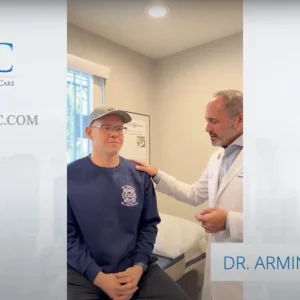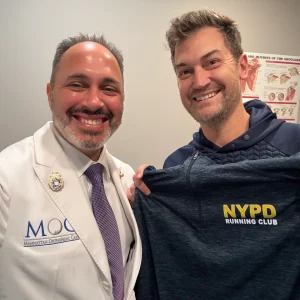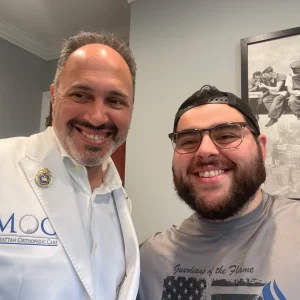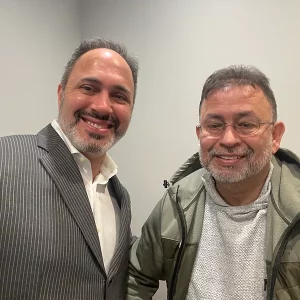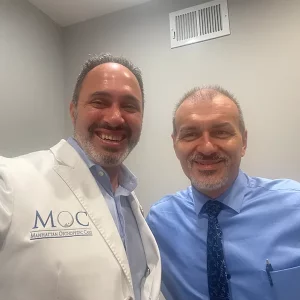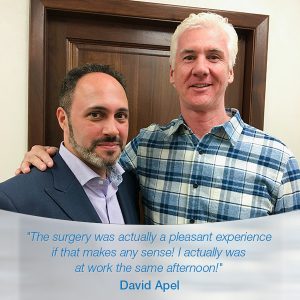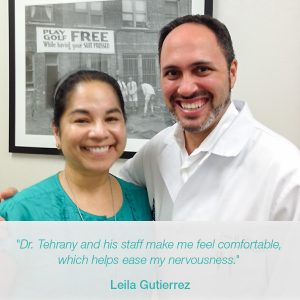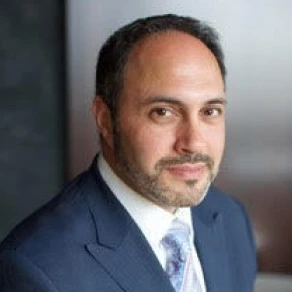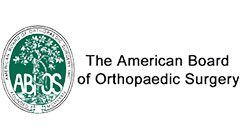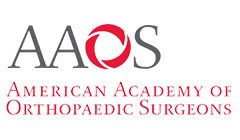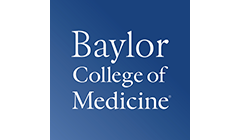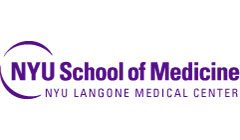Top NYC Orthopedic Surgeon, Dr. Armin Tehrany, believes in educating his patients on the best treatment options for a torn meniscus knee injury.
Meniscus Tear Overview
The meniscus is comprised of two c-shaped wedges of cartilage that cushion and stabilize the knee joint. A torn meniscus can cause pain and limited mobility in the knee. Athletes are at particular risk for meniscus injuries, in particular those participating in contact, and high-impact sports such as football and volleyball.
Causes of a Torn Meniscus
Meniscus tears are caused by an injury or trauma to the knee, or from degenerative conditions such as osteoarthritis. Since most of the meniscus has no blood supply, these tears are difficult to heal and may worsen over time. Also, the meniscus weakens as you age, and therefore older athletes are at a greater risk of developing a meniscus tear.
Meniscus Tear Symptoms
The most common symptom of a meniscus tear is a pain in the knee. Other symptoms may include:
- Swelling
- Limited mobility
- Tenderness when pressing on the sides of the knee joint
- A popping or clicking sound or sensation when moving the knee
How is a Meniscus Injury Diagnosed?
Dr. Tehrany is the preferred board-certified orthopedic surgeon for many athletes across Manhattan and Staten Island. During your consultation, he will take a detailed medical history and complete a thorough physical examination. This includes the McMurray test during which pressure is applied to the knee in various positions.
Tests may include X-ray and MRI scans to examine the extent of the injury and to rule out any other injuries, or conditions that may affect treatment. It is common for a meniscus tear to also present with other injuries such as an anterior cruciate ligament tear. Your surgeon may distinguish between the following types of meniscus tears.
- Intrasubstance Tear: Usually degenerative in nature.
- Radial Tear: Occurs in the avascular zone which makes healing difficult due to no blood supply.
- Horizontal Tear: If located in the vascular zone then it usually responds well to surgical intervention.
- Flap Tear: Part of the cartilage gets caught in the joint, and causes it to get “stuck”
- Complex Tear: As the name suggests, it is complex in nature and requires a varied approach such as partial removal of the torn meniscus and repair to other parts of the knee.
- Bucket-Handle Tear: Usually requires urgent treatment to aid in long-term mobility of the knee.
Treatment Options for a Torn Meniscus
Dr. Tehrany considers various factors before making treatment recommendations for a meniscus tear. These factors include your age, physical activities, lifestyle, and the extent and location of the injury. Treatment options for meniscus tears include:
- Rest
- Cold compress
- Physical therapy
- Anti-inflammatory medications
- Immobilization of the knee in a brace or cast
In severe cases, arthroscopic or meniscus repair surgery may be required, but your orthopedic surgeon will discuss this in detail with you.
You don’t have to live with knee pain any longer, we can help!
Consult New York City’s Trusted Orthopedic Surgeon
Manhattan Orthopedic Care is known for offering superior treatment for conditions, and injuries affecting the knee and shoulder. Dr. Armin Tehrany is an award-winning top surgeon who is also trusted as an Honorary NYPD surgeon.
Dr. Tehhrany serves patients throughout Staten Island and Manhattan. His goal? Patient comfort and improved quality of life for his patients throughout the treatment and management of their knee and shoulder conditions.















